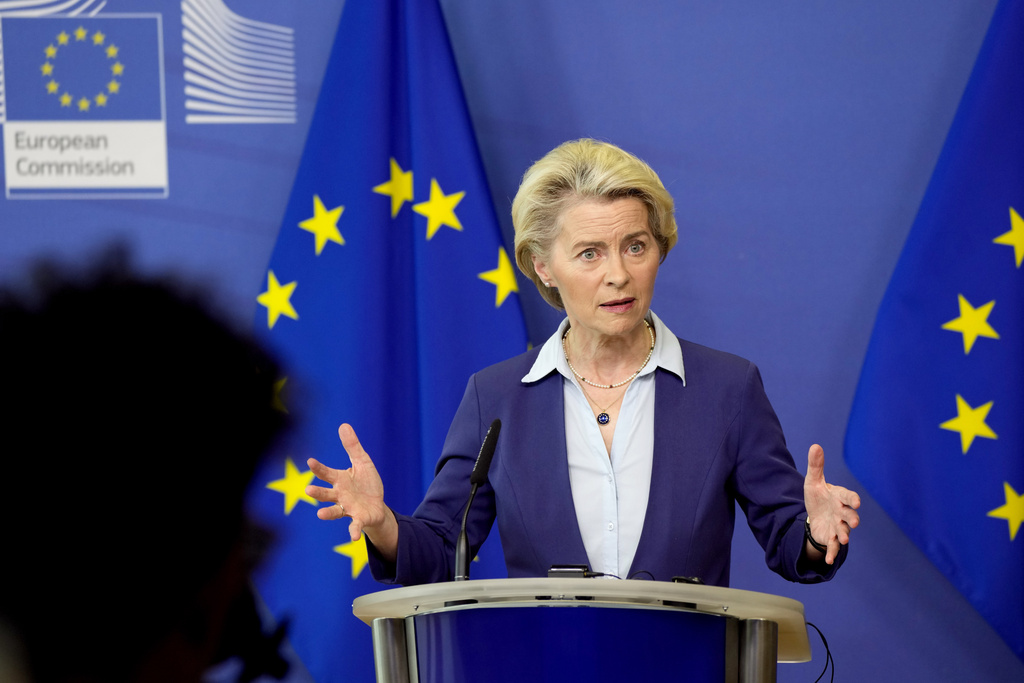The European Commission is proposing that EU member states provide a total of €50 billion in grants and loans to Ukraine over the next four years to help rebuild the country, Commission President Ursula von der Leyen said on Tuesday.
“Above all, the creation of the reserve will provide predictability for our partners in Ukraine, will encourage other donors, and will allow us to calculate our financial support according to the situation on the ground, as we all know that a war requires us to be as flexible as possible,” said von der Leyen.
The call for tens of billions in aid for Ukraine comes at the same time that the EU has frozen billions in aid for EU member states Hungary and Poland over so-called rule-of-law issues. Ukraine has received extraordinary amounts of aid, with substantial amounts of that aid funneled back into international investment behemoths like J.P. Morgan and BlackRock, arms manufacturers, and even corrupt officials within Ukraine.
The tremendous amounts of money flowing into Ukraine also comes at a time when Europeans are dealing with elevated inflation, rising poverty, higher interest rates, and extremely high housing prices that have priced most families out of the market.
At a press conference on the review of the Multiannual Financial Framework, von der Leyen also announced that the EU proposes to allocate €15 billion for migration management. She stressed that the funding would be used to strengthen cooperation at the EU’s external borders and with countries outside the EU to help refugees in neighboring countries.
The commission president also said the EU should invest €160 billion more to strengthen its technological competitiveness. She added that the commission would introduce a trade barrier against non-EU countries, focusing on “a limited and narrow range of high tech” to preserve its own competitiveness.
“Globalization and an open economy are good for Europe economically, but the world is becoming increasingly geopolitical and there is a limited number of key technologies that can be used aggressively. This is why the issue of economic security has become a priority for us and for many of our partners,” she stressed.





